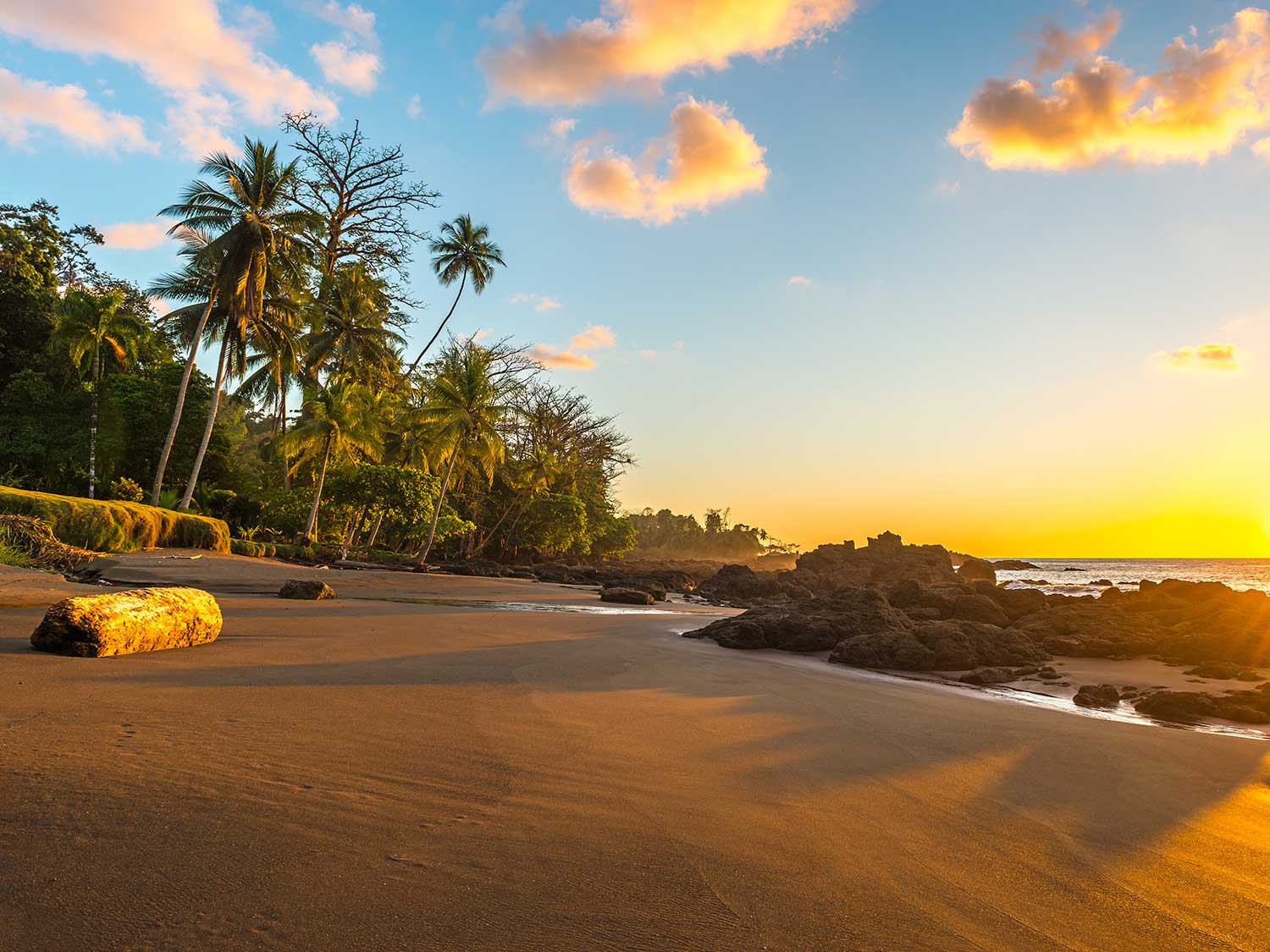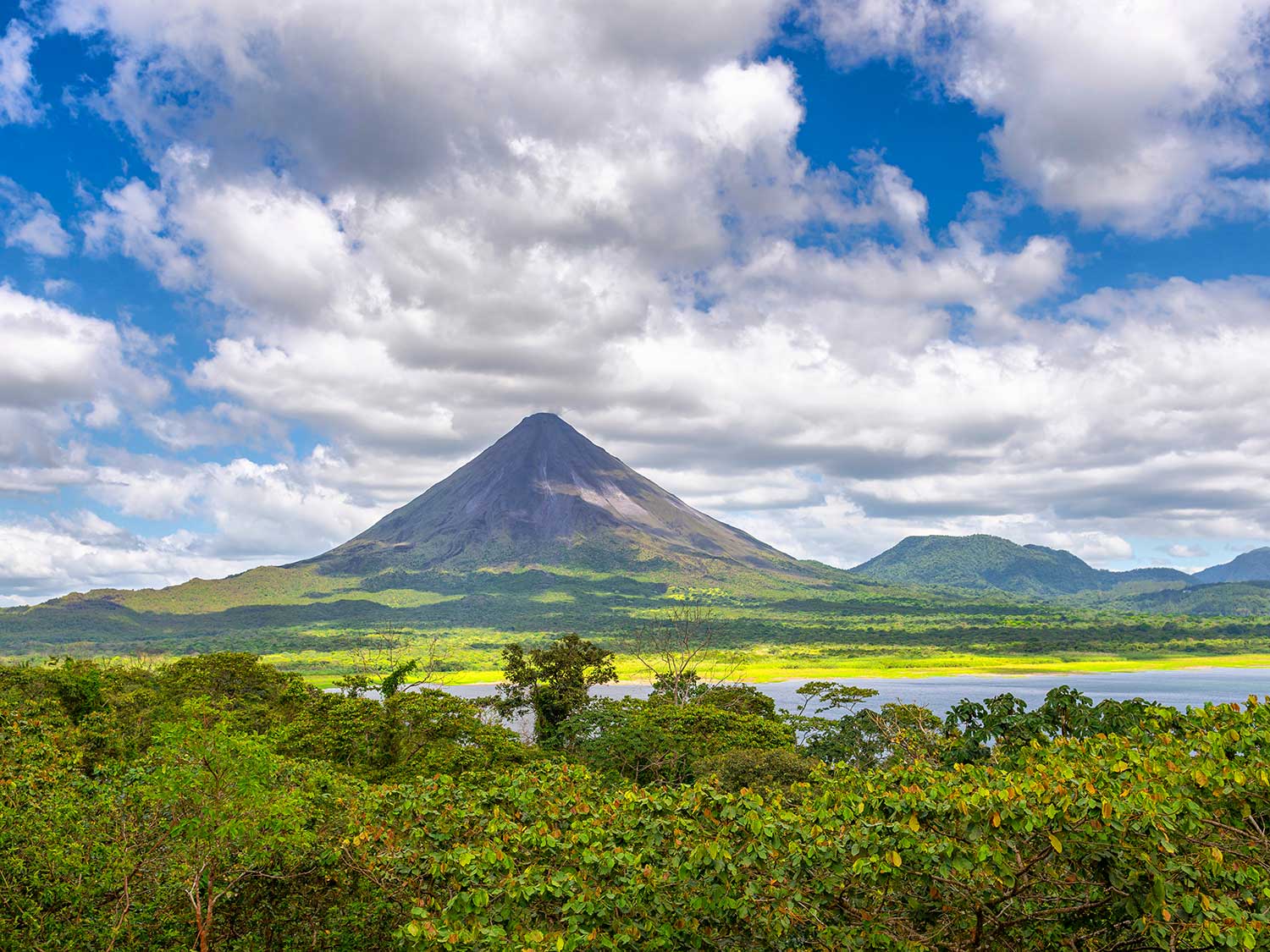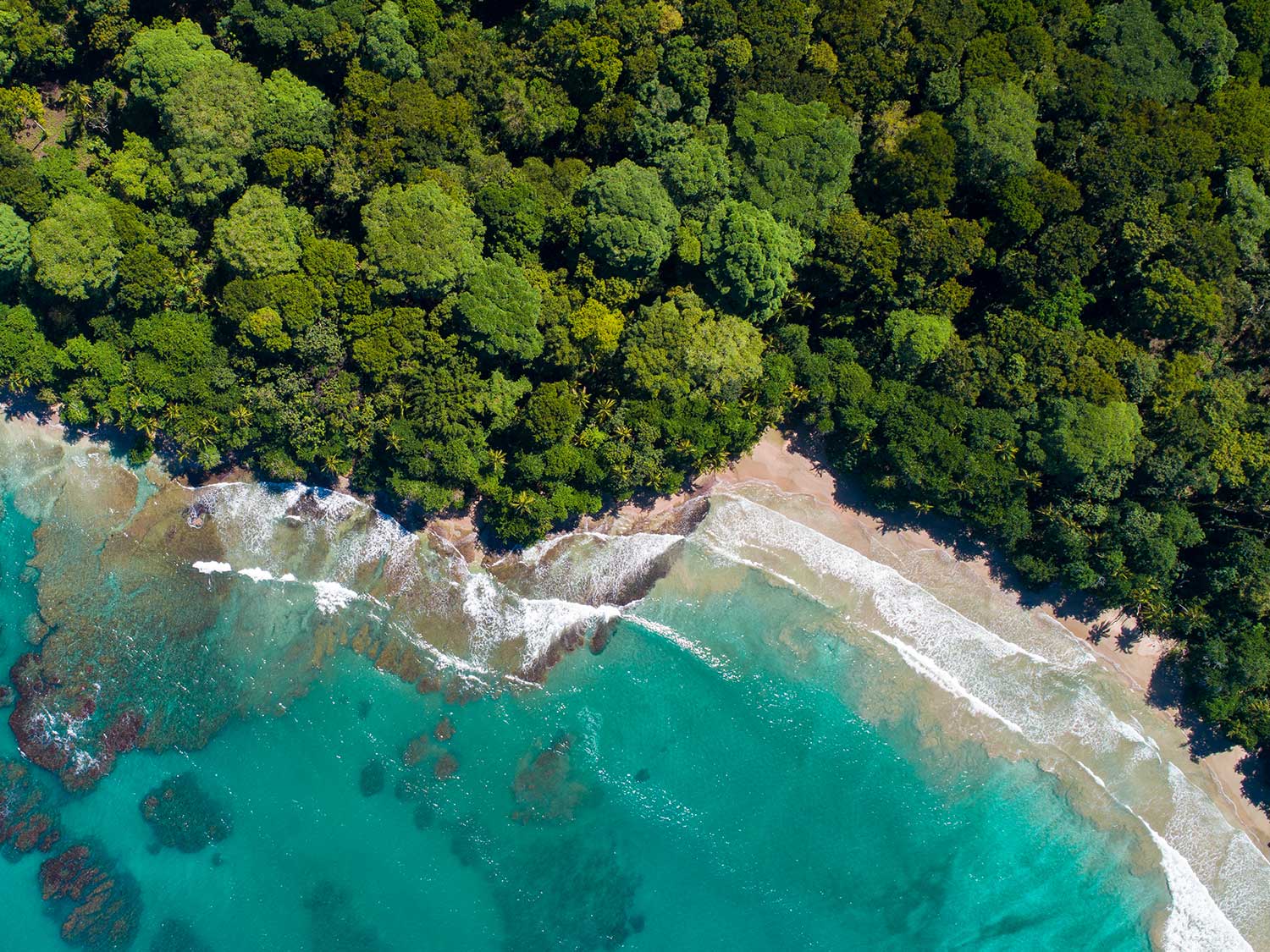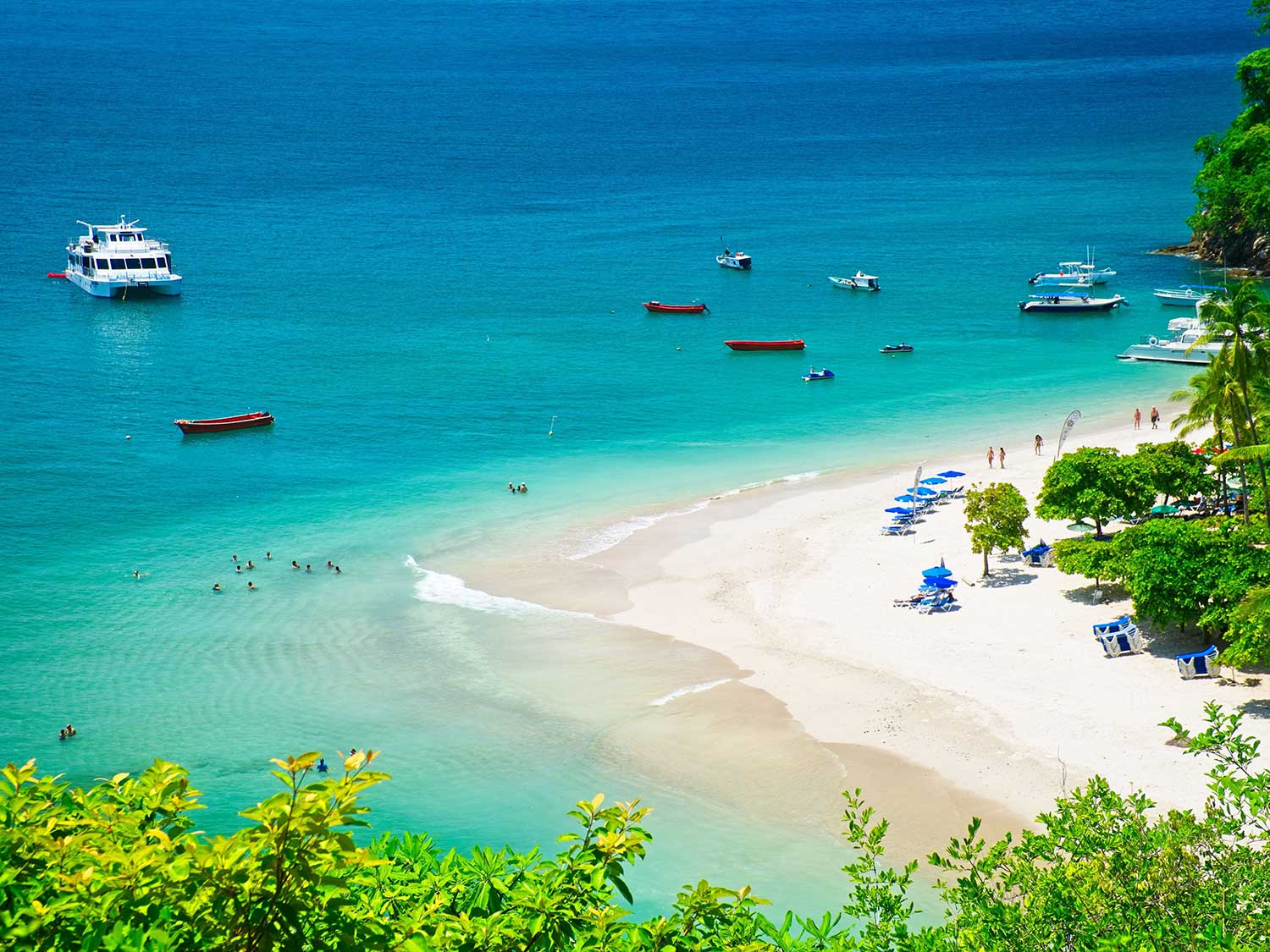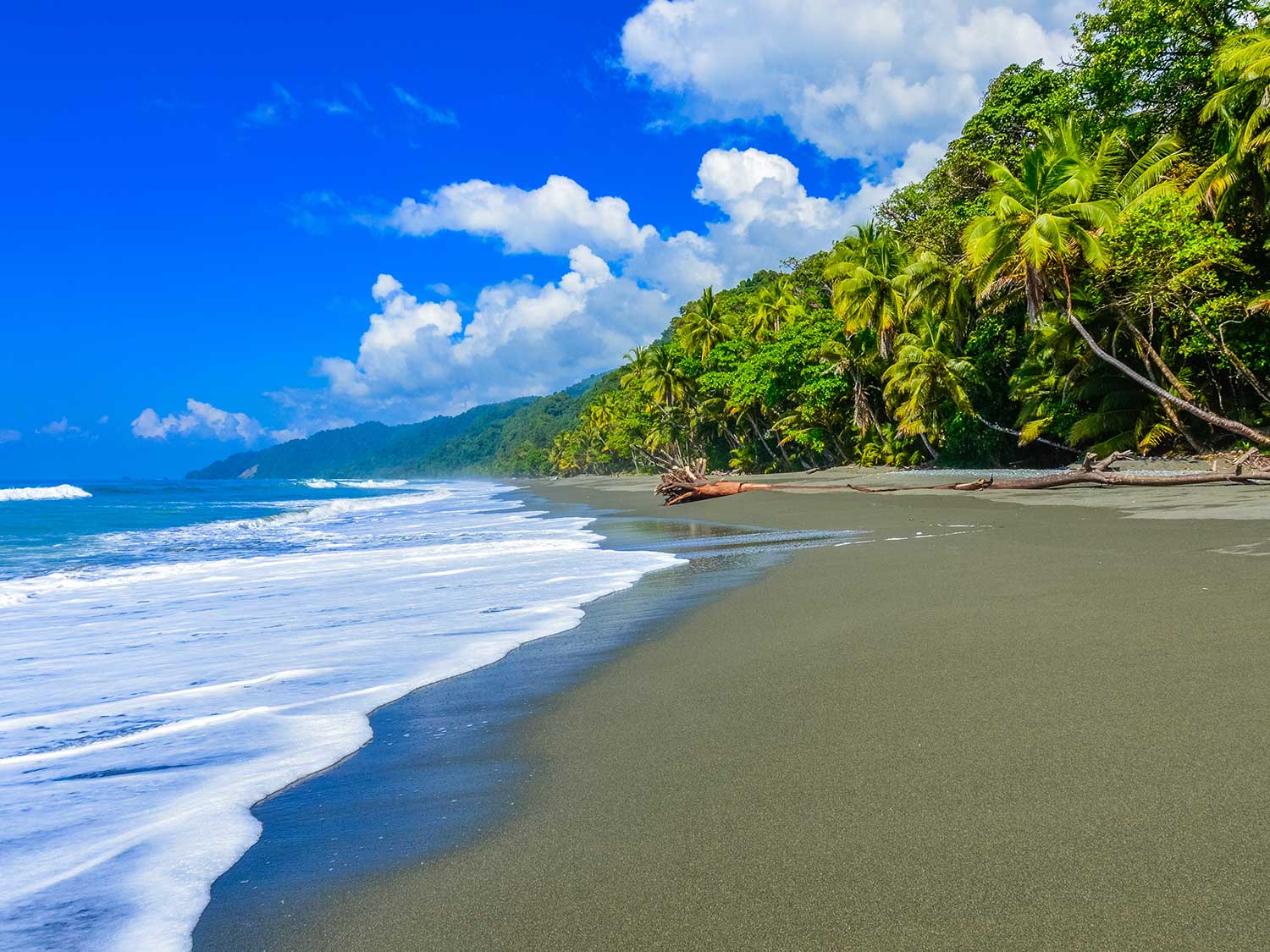Everything You Need To Know About Visiting Costa Rica Right Now
Boasting some of the world’s most beautiful beaches, eco-friendly lodges, and rainforest retreats, finding Pura Vida has never seemed more necessary.
There's no place on Earth that encapsulates the spirit of Pura Vida (pure life) quite like Costa Rica. Believed to have been derived from a 1956 film of the same name, today that ethos is not only a reminder of living life to the fullest, but also a colloquialism that's exchanged as frequently and casually as a simple hello or goodbye.
It's just one of the many little things that makes Costa Rica so special, and after everything we've been through this last year, going in search of something, anything, as important as Pura Vida has never felt more necessary.
Wedged between Nicaragua and Panama and spanning both the Caribbean and Pacific coastlines, from the sun-drenched beaches and world-renowned surf towns along Guanacaste's Gold Coast to climbing the Arenal Volcano and zip-lining your way through Monteverde Cloud Forest, Costa Rica has long captured the imaginations of sun-seekers and adventure travelers alike. It's not only is it one of Central America's most prosperous countries, but one of its most progressive, too.
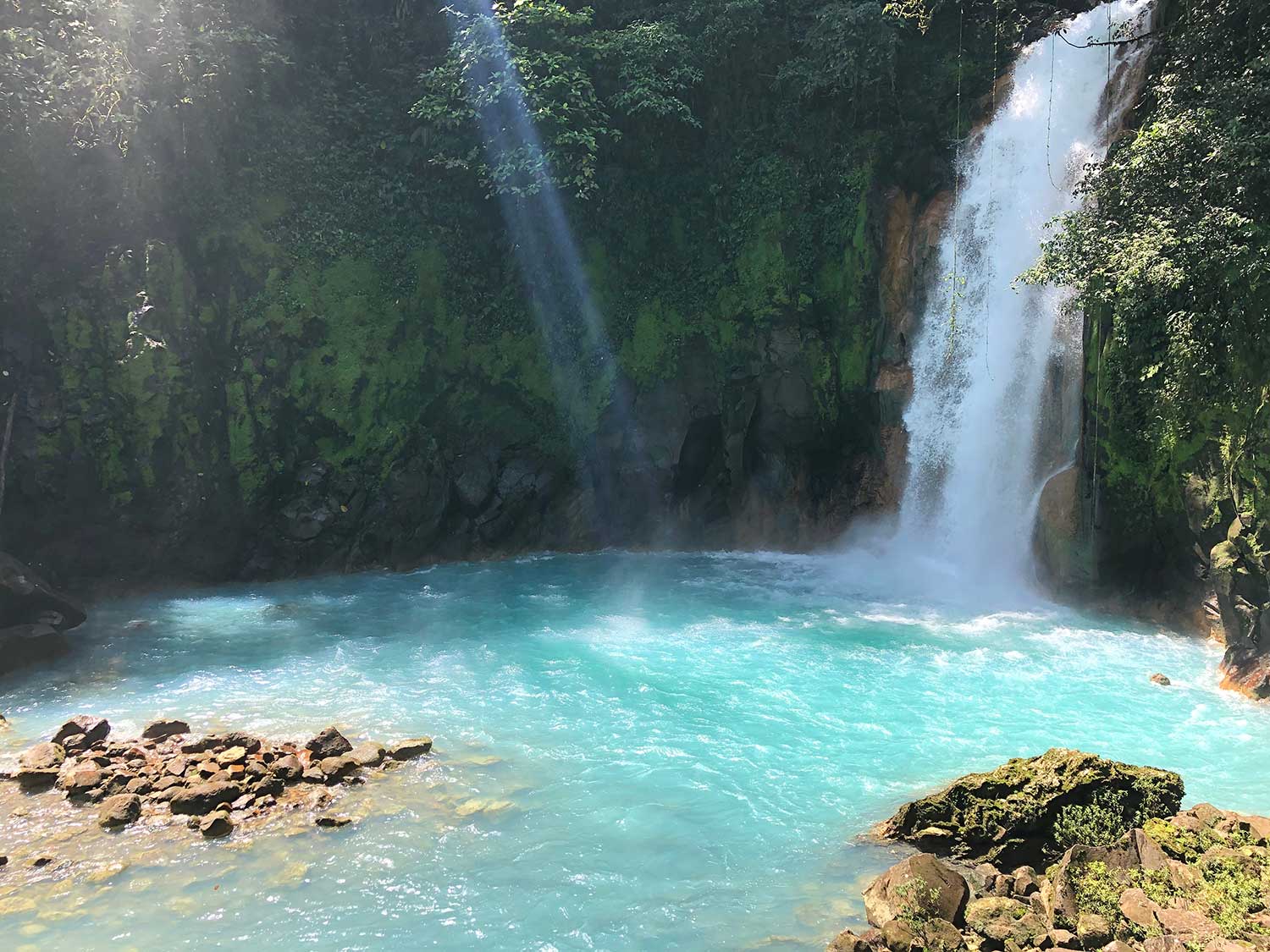
In 2019, Costa Rica was named by the UN as a 'Champion of the Earth,' for its aggressive climate change initiatives and today, it boasts some of the best eco-friendly resorts and protected national parks in the world.
These days, though, Costa Rica has been channeling that progressive Pura Vida energy toward combating the pandemic, as it is one of the first countries to develop guidelines and receive a Safe Travels stamp with the World Health Organization and Centers for Disease Control and Prevention. Still, Covid-19 continues to pose a threat. The country has been aggressive in its approach to curbing the spread and remains committed to bringing travelers back as safely and responsibly as possible.
"Most of Costa Rica's tourism offerings are found in nature, which makes a physically distant and enjoyable experience in the country easy," Costa Rica's Tourism Minister Gustavo Segura tells us. "Visitors can experience our Pura Vida lifestyle in speaking to the locals, exploring small communities and cultural centers, and visiting our diverse landscape, such as rainforests, volcanoes, beaches and mountains."
But before you gallivant into that gorgeous Costa Rican sunset, there's still quite a learning curve to comprehend. From how to find the right medical insurance (a current requirement for travel here) to what hotels and tour operators are doing to ensure your safety to finding accommodation where social distancing is actually built into your stay, here's everything you need to know to plan a safe and successful trip to the land of Pura Vida right now.
You Don’t Need a Negative Covid Test to Travel…
You do, however, need a QR code. As of November 1, Costa Rica has allowed all countries in the world to enter by air, as long as they meet the Costa Rica's current visa and Covid-19 entry requirements. While you're no longer required to take a Covid test prior to entry, you must purchase travel insurance and fill out a Health Pass before you go.
There are three government approved insurance companies to choose from: Sagicor, Grupo INS, and BlueCross BlueShield. I opted to go with Sagicor, which is listed as the "preferred insurance" on Visit Costa Rica's website. Coverage plans specifically address Covid-19 related illness and covers up to $20,000 of medical expenses and prescription drugs as well as $4,000 of lodging expenses in the event that you do contract Covid while you're in country.
Plans can be purchased for an individual or family depending on the number of people in your party, and prices will vary depending on your age and length of stay. My partner and I selected the "Family Plan" for two people, which broke down to just over $11 per person, per day.
You Must also Complete a Mandatory Health Pass
Once you've purchased travel insurance you must then complete a mandatory Health Pass. It is important to note that you will need to include your 20-digit insurance policy number on the Health Pass form, so make sure to purchase the insurance before you fill this out.
You'll also need to have some basic airline information handy, including flight number, seat number, and departure date. It's recommended that you complete the Health Pass form within 48-hours of your departure time. Once you fill it out, you'll be emailed a QR code in a PDF and you'll need to scan at check-in. You might be asked to present this code to the Immigration officer upon arrival in Costa Rica so make sure you have you phone charged up and readily available when you land.
One more note about immigration: you might be asked, as we were, for the name, address, and phone number of your hotel on the ground in Costa Rica. Unless you speak fluent Spanish, you might find it prudent to have a printout of this information to hand them just in case.
You Don’t Need to Quarantine, but You Must Stay Vigilant
From the moment you touch down in Costa Rica, you'll notice masks are widely worn. There's no military (it was abolished in 1948,) so the government has stepped up and acted swiftly and proactively to curb the spread of Covid through the enforcement of social distancing policies and mandatory sanitary practices countrywide.
As a tourist, it's important to know your role and acknowledge that just because you're on vacation, you're still expected to wear masks, sanitize as needed, and act in accordance with these rules. Hotels have even gone a step further and implemented on-site Covid testing facilities and other safety protocols from temperature checks to sanitizing stations.
Before we were allowed to check in at The Four Seasons Costa Rica at Peninsula Papagayo, we had to scan our temperatures at the automated station just in front of the hotel lobby. These stations were also set up out front of every restaurant on-site—an example of one of many ways hotels are trying to regulate and preventing the spread of Covid.
You Must Test Negative in Costa Rica Before Returning to the U.S.
In complying with Costa Rican Ministry of Health guidelines, all travelers must fill out and complete a PCR SARS-CoV-2 test between 24-72 hours before returning back to the U.S. Prior to taking the test, you will be sent a questionnaire that has to be completed 24 hours prior, and all the information must match the information as it appears in your passport.
This form must be completed for each person (including kids ages two and older) and the results will be sent back to you via email no more than a period of three-days or 72-hours prior to your departure. You can find more information about getting tested here.
How to Schedule a Covid Test in Costa Rica
We arranged our test with our hotel concierge when we checked in at The Four Seasons and our test was performed on the patio of our hotel room within the 72-hour time frame before our departure. Many hotels in Costa Rica are now offering this concierge service or have testing facilities on-site. Testing doesn't necessarily come cheap though and it is not covered by your insurance.
My partner and I paid around $140 USD per person for the test, which was added to our hotel folio and paid upon check out. Results can take up to two full days to come back, so it's best to check with your hotel or local health care provider about optimal testing times.
You can find a complete list of participating laboratories currently performing PCR-tests in Costa Rica here. Otherwise, it's important to check with your hotel or accommodation host and plan accordingly.
Who has to Take the Test? What Happens if You Test Positive?
Any passenger over the age of two years and entering the U.S on a commercial, private, or charter flight, or in any transit, must provide proof of a negative Covid-19 test before re-entering. The U.S currently accepts two types of tests: the polymerase chain reaction (PCR) test and the antigen test.
If you experience symptoms or if you test positive for Covid-19 while you're in Costa Rica, you will be required to comply with the mandatory 14-day quarantine period. This is what the insurance policy you purchased prior to traveling goes towards.
Getting around Town is Easier than You Think…
But you should still know where you're going
Most hotels will offer transportation to and from the airport; however, if you're really looking to get out and explore, renting a car is not a bad option. You don't need an international driver's license here, so if you're up for it, and you have a valid driver's license from your home state and a passport, it's well worth considering.
Word to the wise: outside of major cities like San José and Liberia, service can be spotty, so if you're planning on heading into the rainforest or anywhere off the beaten path, you should definitely opt for four-wheel drive and an old-school map or drop a pin of where you're going before heading out.
There are Additional Costs and Obstacles
There are additional costs and fees right now, but if you're seeking sunshine, or if you just need to get away, you really can't do better than Costa Rica. On our recent visit, we stayed at two hotels based on their proximity to nature, sustainability, and social distancing. The first place we checked into, ORIGINS, is one of many amazing eco-friendly lodges set deep in the rainforest.
With only six villas and a three-bedroom treehouse, each with its own fire-heated plunge pool, on-site farm, and Michelin-rated chef, we spent our days exploring the area on horseback, hiking to nearby waterfalls, and simply soaking the day away in our plunge pool. There's also a naturalist who lives on property and offers nature tours to explore the local flora and fauna, which was a major highlight.
After a few nights in the jungle, we made our way west to the beach where The Four Seasons offered a different slice of Costa Rican life. We enjoyed activities like touchless sound meditation (highly recommend) and yoga to paddle-boarding and swimming. The hotel uses QR codes for everything from ordering meals to room service, and every restaurant on property offers outdoor seating, which was a major draw for us. We also found the beaches to be pretty much empty throughout our visit.
"The phrase Pura Vida can be heard throughout Costa Rica, but it is more than just a saying to us," Segura says. "We view Pura Vida as a way of life, a philosophy on how to live life to the fullest, and connect to the essential values of life. Once you have visited Costa Rica, you will understand and feel the true meaning behind it."
